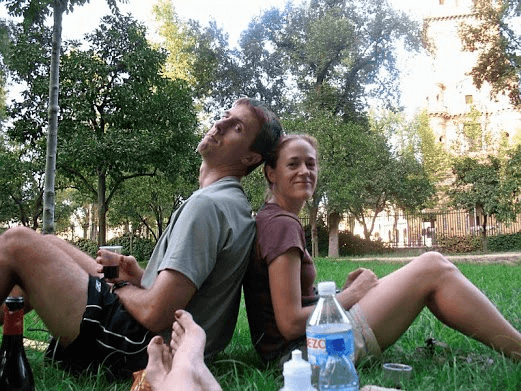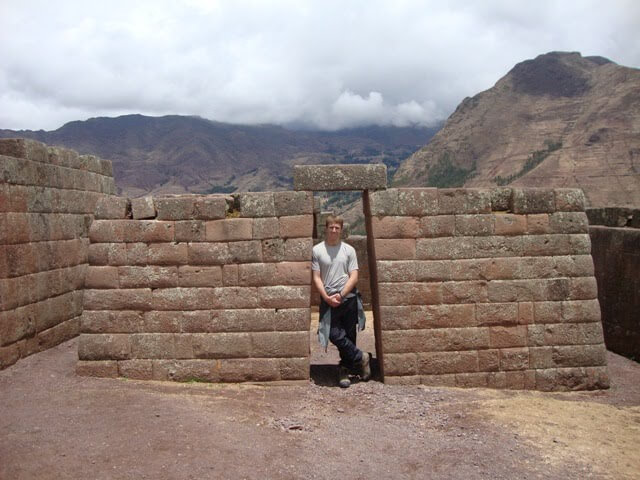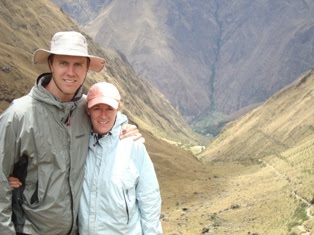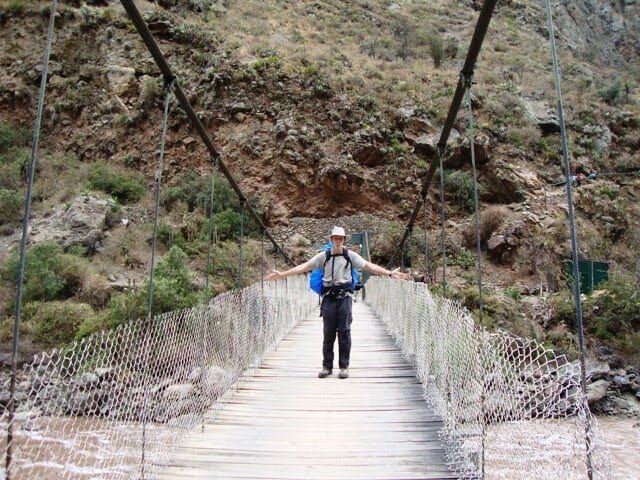When will you retire or reach financial independence? I think most of us would be happy retiring (or having the option) sooner rather than later. The problem, of course, is that even with acceleration strategies it takes time to accumulate enough savings to support ourselves without having to work.
Fortunately, there is another way to view retirement that allows you to test retirement before you’re ready using mini-retirements. That is what this article is all about.
Mini-retirements are a practice that turns on its head the traditional idea of delaying all of your real enjoyment of free time and travel until you have a huge net worth and until you reach full financial independence. Instead, mini-retirements allow you to take extended breaks right now so that you experience life as if you were retired.
Learning about and implementing mini-retirements have altered the trajectory of my life in a very positive way. I want to say up front, however, that this approach is not for everyone. Mini-retirements require tough choices and a bit of an unorthodox mindset. I hope you sift through my own details in order to get the core benefit of the concept. Then decide for yourself if mini-retirements are something for you.
What is a Mini-Retirement?
A mini-retirement is like hitting the pause or slow-motion button on your life. It is usually an extended trip away from home, but a mini-retirement could be any extended break that alters the rhythm and ingrained patterns of your work and home life.
A mini-retirement is different from a vacation. A vacation can be wonderful and relaxing, but at least for me, vacations do not permanently change the fabric of my life. In fact, sometimes I become more stressed and entrenched in work patterns after a 7-day vacation than before because of the anxiety before leaving and after returning.
A mini-retirement must be long, anywhere from 1 month to 1 year or more, in order to bring about the desired effects. A longer time away gives you more space to slow down and to think, and it also forces you to make real, critical changes in your life back home.
The point of a mini-retirement is to mimic the experience of an actual retirement, just in miniature. The point is to carve out space to catch your breath and to observe yourself and your life as it is right now. The point is to distribute these breaks throughout your life, and not just wait until some uncertain day in the future when you finally achieve financial independence.
My First Mini-Retirement
In 2009 I took my first mini-retirement, a 4-month trip to Spain and South America. Before the trip I was excited, tense, and terrified all at the same time. It was a huge step for me to leave my real estate career of 7 years behind for 4 months. My wife Kari and I spent our first 6 weeks in Spain, and the second 2.5 months in Peru, Chile, and Argentina in South America.
In Spain we first stayed with a local family and studied Spanish in the old university city of Salamanca, where Kari had first studied abroad in college over 10 years before. The beautiful stones of the cobblestone streets, cathedrals, and ancient buildings literally glowed at sunset. It was amazing.
We also toured Madrid, Toledo, Seville, the white hill towns of southern Spain, Granada, and Barcelona during the second segment of our trip. Finally, during the last 2 weeks we decided to settle down in a remote fishing town called Cadaques in northeastern Spain along the rocky Mediterranean coast near France.
It wasn’t until after these 2 weeks of lazy, thoughtful days in Cadaques (almost 6 weeks into the trip) that I *finally* relaxed inside. It was a palpable sensation, as if some knot deep inside of me finally became loose and untangled. It was like my soul breathed a big sigh of relief.
The rest of the trip was spent immersing ourselves in the cultures of Peru, Chile, and Argentina, slowly visiting historic sites like Machu Picchu, and hiking for days through majestic national parks in the Patagonia region.
The entire experience hooked me on the concept and the benefits of mini-retirements. Since then my wife and I have repeated the pattern with road trips to the western USA visiting places like Denver, Colorado, Rocky Mountain National Park, Yellowstone National Park, Mt. Rushmore and the Black Hills of South Dakota, and more. We look forward to more extended trips abroad to allow our kids to learn foreign languages and to allow them to spend quality time with their mom and dad while they’re still young.
The main point of this is not to brag about my own accomplishments or to suggest my own travel preferences as something you should do. On the contrary, the main point of all of this was that I did it before I had enough true passive cash flow to be financially independent. You can too.
Why Mini-Retirements Are Not Optional For Me
Admittedly, I am good at the intense, fast-paced, get-it-done economic world we live in. As an entrepreneur, this tendency towards a driven personality (competitive, time-oriented, goal-oriented) is extremely helpful and productive, but on a personal level it has its problems.
The stress of continually climbing, producing, and solving problems builds up over time. After my experience of release in Spain, I realized that if I had that much tension built up at a young age of 29, what would it be like for me later in life after years of non-stop job, kids, and grinding at life?!
It occurred to me that taking mini-retirements before full retirement wasn’t optional. I needed to do it regularly for my own physical, mental, and spiritual health. I needed a button I could press to return my life to a more deliberate and sane pace in between more intense and fast-paced periods.
But, ultimately the best reason for mini-retirements is philosophical. It is about life, death, and what it means to live a rich, full life. Mini-retirements are a hedge against life’s ultimate risk: dying without fully experiencing life.
If you died tomorrow, what regrets would you have? I would not regret having passed on the fancy car or a bigger house so that I could move closer to financial independence. But, what about missing essential life experiences like traveling to amazing places, expanding my mind, and spending quality time with my wife and kids while I’m still young and able? That is not worth missing for anything in the world.
In actuality, mini-retirements may still lead to financial independence just as fast because they make you more productive, creative, and a better worker when you get back. But, even if that were not the case, I would not hesitate to take them anyway.
How to Take a Mini-Retirement
Executing a mini-retirement certainly has some challenges logistically, but the biggest challenge will come inside your own head.
The parental voice inside of you may fight hard against an “irresponsible” decision to give up security and momentum by leaving your job and your life for an extended period. This claim by the careful voice in your head is not necessarily right, of course, but years of conditioning and habit won’t change easily. At some point you’ll have to move against conventional wisdom if you want to do something exciting and unconventional.
When my wife asked for a sabbatical (unpaid) from her Spanish teaching job at a community college before our 4-month trip, she was understandably scared. This was not normal behavior in that world. People needed their jobs and the salary, and they just didn’t ask to take large blocks of time off and then come back to a job after. What if they said no? What if they didn’t really need her? What if she didn’t have a job when she came back? What if she was throwing everything away?
Ultimately, her request was accepted, and she had a job when she returned. But, I think she also realized that it would not have been the end of the world if they had said no. That courageous request also helped her with another difficult decision later on to teach only part-time. This allowed her to be with our young girls more often, and it also gave her more flexibility for subsequent mini-retirement trips we have taken.
Like my wife, you may find that the most valuable part of your mini-retirement is the realization that you are your true security. You have strength and resiliency in reserve that you never knew about, and you must move out of your comfort zone in order to claim it.
On a more practical point about mini-retirements, you must solve two issues: 1. The money; 2. The entanglements at home.
1. The Money
By a long-shot the first issue is the easiest to solve. This is just a matter of figuring out how much money the trip will cost and then setting aside enough in the bank.
Keep in mind that long-term travel is very different from short-term vacations. The biggest costs of trips are transportation and lodging, and both are reduced significantly on a per day basis when you are staying in one location for longer periods of time.
My goal for mini-retirement trips is to live as much like a local as possible by staying in less touristy, inexpensive areas and by moving slowly. Fast travel burns money, whereas slow travel allows you to be patient and opportunistic. Your money will go even further if you travel to safe, interesting, but less developed countries. These could include destinations in Central America, South America, Eastern Europe, and South East Asia.
To give you some perspective, I am writing this article on a multi-week trip to Mexico. Our family of four has lived on about $150/day, not including the original flight but including lodging, intermediate transportation, entertainment, and food.
It will also help to cut the cords on as many expenses at home as possible. Can you rent your house out (or sell it) while gone? Have you paid off credit cards and other personal debts? Have you done small things like turning off the hot water heater?
While the money issue is simple math, it’s of course not easy. You may need to work for years to save up the money for the trip. That’s ok. This gestation time of saving, dreaming, and planning is a big part of the fun of mini-retirements.
2. The Entanglements at Home
The second issue to solve is tidying up your attachments to home. The biggest attachment is your job.
If you work for someone else, your first option is to ask for a sabbatical or an unpaid leave. There is a precedent for extended absences in the academic world, but even in the corporate world, career breaks are becoming more popular.
The key will be ensuring that your company and your boss are taken care of while you are gone. You will need to arrange contingencies, find people to cover your responsibilities, and perhaps arrange remote work systems so that you can check in and contribute occasionally.
If your boss or company is not high on the idea, you have a couple of options.
The first option is quitting, which is not as bad as it sounds. You can part ways on friendly terms, and if you also ensure that you add an enormous amount of value to your company while you are there, you could possibly get taken back full-time or with contract work after your mini-retirement is finished.
Keep in mind that gaps of time away from work on your resume for personal development, raising kids, and travel do not have to be a negative. This can become something that makes you interesting, unique, and marketable in the job market. To me, it shows an enormous amount of initiative, creativity, and strength to make these mini-retirements happen, and those are very marketable skills!
The second option is to start working towards a more flexible work arrangement – being your own boss as an entrepreneur or contract worker. This has been my own career path from the beginning, so I have a lot more experience in this arena.
If you are currently working a job, you could start a “side-hustle” or a microbusiness that could eventually replace part of all of your job income. Paula Pant, a fellow entrepreneur, blogger, and real estate investor wrote a great article on this topic. My favorite book on the subject is The $100 Start-up by Chris Guillibeau. He also has an extensive blog archive on the subject.
You must be careful that you create a business that not only pays the bills but also doesn’t tie you down even more than your job did. Here are a few ideas to keep in mind that may help create a lifestyle-friendly small business that allows flexibility for mini-retirements:
- Keep your overhead and your business small and simple. I wrote about this on BiggerPockets.com.
- Have a competent business partner who can cover while you’re gone.
- Form strategic alliances with other entrepreneurs and cover for each other during trips.
- Make your business remote and not location specific (ex: tenants pay online, no office, cloud based systems)
There are of course other how-to details to cover, and I’m happy to answer any of your questions in the comments section below. I’ll also offer you a few more resources below that do a good job discussing the how of taking mini-retirements:
- Book – Vagabonding: An Uncommon Guide to the Art of Long-term World Travel by Rolf Potts (This book is one of my favorites. It is short and sweet, and I reread it often.)
- Q/A on long-term travel with Vagabonding author Rolf Potts
- Book – The 4-Hour Workweek by Tim Ferris (This was my original inspiration and guide.)
- Tips and Trick for Mini-Retirements – JD Roth interviews Tim Ferris
Your Turn?!
I have given you an overview of what mini-retirements are, why they are beneficial, and how you can go about them. If this idea excites you and causes you to lose sleep for the next couple of nights, it’s probably something you need to start working towards. I’m sorry, the sleep thing won’t get any better until you do something about it:).
If long-term travel, leaving your job, and the other ideas I’ve put forward here are too much or aren’t interesting for you, no problem. This is not a one-size-fits-all prescription. It’s your life, after all. You can continue moving towards early retirement, and enjoy your current situation in the mean time. But, keep in mind that you do not have to choose between mini-retirements and retiring early. They can both work well together.
As my own investments and net worth continue to get better and better, the need to “leave work” will be less and less of an issue. But, because I will always have entrepreneurial projects, I imagine the pattern of intense work and taking a break for travel and fun will never leave me. That is a life-pattern I can certainly get used to! How about you?
Can you see mini-retirements in your future plans? What challenges do you see? What excites you about the idea? Or, have you taken a mini-retirement and how did you make it happen? I look forward to receiving your thoughts and questions in the comments section below.
Get My Free Real Estate Investing Toolkit!
Enter your email address and click "Get Toolkit"





Taking baby steps but on our way to this. Right now we are able to take small trips as long as there is wifi available since I work remotely and can do that from almost anywhere. Read the 4-hour workweek the end of last year and it changed the way I think, we have taken 3, week trips since, I work some and take some PTO also. Enjoying the articles, keep them coming!
Awesome, Jack! Glad the 4HWW had a similar positive impact on your approach. Baby steps are great. You can’t take off and leave right at once, but you can certainly practice along the way with the smaller trips. I’ll keep the articles coming, and be sure to keep me updated with your own progress.
Thanks for this article. I am more and more thinking in the direction of mini retirements and travel rather than building up all the cash to be free at one moment in time.
I look forward to read more of your mini retirements ideas
Thank you, Amber! I agree. The more I’ve thought about it, building up reserves of memories and experiences appeals more to me than quickly building up cash in the bank. I like to do both, but the experiences are much more valuable long run.
Hey Chad, this has to be one of my favorites of yours, love the details and the first hand experience. I have visited Spain a couple times while I was in college and really loved it, even made it to Sevilla. The mini-retirement has crossed my mind, but have to see how cash heavy we are when/if we move to Florida, that would be the best time, so many things would be in the air, but it’s worth a consideration to take a month or more and travel Italy (wife’s choice). One question did you have anything come up while you were out on the real estate you own?
Thanks for commenting and the compliment, Even Steven! Yeah, there’s a lot to consider and it’s never easy to prep for one of these mini-retirements. I hope you can figure out a way to make it work if you move (that would be cool if you do!). The difficulty of the preparation makes it worth it for me. It’s like extracting myself from the rut of life!
Good question on things happening at home while traveling. I can remember two specific examples:
1. I got a voicemail (through my email) that a hotwater heater was leaking while I was getting ready to visit a penguin colony along the Megellan Strait at the southern tip of South America. I got on skype with my little laptop, paid 2.5 cents/minute to call my plumber, and 3 minutes later I was off the phone, my plumber was on his way, and I was chilling with penguins:)
2. We had a closing to sell a property. I had about a month lead-time, and I my partner was able to sign for us. If that had not been the case, I would have given a trusted friend or business colleague a power of attorney (specific to that property).
With communication tools today and a good team back at home, it’s even easier to head off the rare urgent issues that do happen.
Thanks for your post, Chad. I’ve ended my full time career this year (at 49!!) so a mini-retirement won’t be necessary. I would have loved to have one (or ten…..) during my full time working years, but as a freelancer with long term clients, it wasn’t doable. In hindsight it probably worked out OK as I reached FI sooner than if I had work gaps earlier in my career. But if someone has the option, it may work out great!
Thanks again.
John
Hey John,
Congrats on the real retirement! Nice work. Yeah – everyone has to figure out their own path, and as long as you think it through that’s what matters. I like to spread the word about mini-retirements because so many people grind away their lives for too long thinking there is not an alternative. The end of the rainbow is just part of the fun. The stops along the way are amazing too.
I appreciate your stopping by to read and comment.
i’ve heard of mini-retirements before but haven’t considered it seriously for myself (I’m only 2 years into my career so I’m not ready to leave it yet :P). It’s good to know that I can take a mini-retirement if my life ever needs shaking up. And it’s good to know about this possible solution now because I’m sure I’ll hit a funk at some point in my life (hehe!). I hope more young people read this before they hit their 60’s and suddenly realize there was another way to be “retired”!
Hey Jaymee, thanks for chiming in to share your thoughts. Yes, a mini-retirement is definitely about timing. There is a time for working and paying your dues, because at least for me that contract makes the trips more enjoyable.
It’s good to see that mini-retirements are philosophical. A lot of people tend to tell me that I can’t go on one. But it depends on how I feel I guess.